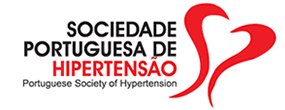HEALTH LITERACY OF PATIENTS WITH HYPERTENSION
DOI:
https://doi.org/10.58043/rphrc.113Keywords:
Chronic Diseases, High Blood Pressure, Health LiteracyAbstract
Background: The non-transmissive chronic diseases are considered one of the most challenging problems of public health, which includes arterial hypertension. It is the most prevalent risk factor for cardiovascular disease. In consequence of its silent and asymptomatic character, the hypertensive struggle to adhere to the treatment program, resulting in a non-efficient control of high blood pressure, which will bring up complications related to morbidity and cardiovascular mortality. Due to this, the importance of appropriate and proper health literacy has been highly distinguished, to increase the knowledge and comprehension of the disease and its therapeutic process with particular focus on the control of risk factors, change of behaviors and lifestyle, and promotion of treatment adherence. Objective: Get to know the level of LS of the users that often attend an open appointment of HTA in the Central Region Methods: Non-experimental study of quantitive comparative nature, descriptive-correlational and transversal type carried out, on a sample non-probabilistic of 39 users that attend an open appointment of HTA. To evaluate the level of health literacy was used the European questionnaire of Literacy to “Health Literacy Survey” in Portuguese (HLS-EU-PT), authenticated by Saboga-Nunes e Sørensen in 2013. For the statistic treatment, it was used the statistics treatment program S2tatistical Package for the Social Science (SPSS)”, in the 28 version. Results: The users are majority from the masculine sex with an average age of 57,5 years, married (69,2), employed (59,0), with educational credentials of 1o and 3o cycles, and residents in an urban environment (64,1). It was observed that 84,6% of the population presents a level of “Literacy in general heath” problematic and inadequate and only 2,6% presents an outstanding level, and the most alarming problematic results are in the dimension of “Promoting health” in which 87,2% present a limited and constricted literacy. Conclusions: These outcomes point out to a necessity of the government, healthcare entities, and health providers to keep investing in strategies that promote health literacy, to the empowerment of the citizens, in a way where they can become more active in the maintenance and improvement of their health and in order to improve the management of their illnessDownloads
References
Instituto Nacional de Estatística [INE] (2021, dezembro). Censos 2021. Divulgação dos Resultados Provisórios. Destaque. Informação à Comunicação Social. Lisboa, Portugal: Instituto Nacional de Estatística
Direção-Geral da Saúde [DGS] (2016). A Saúde dos Portugueses. 2016. Lisboa, Portugal: Direção-Geral da Saúde. ISSN: 2183-5888.
Ministério da Saúde [MS] (2018). Retrato da Saúde, Portugal. Lisboa, Portugal: Ministério da Saúde. ISBN 978-989-99480-1-3
DALYs GBD, Colaboradores H. (2018, november). Anos de vida globais, regionais e nacionais ajustados à incapacidade (DALYs) para 359 doenças e lesões e expectativa de vida saudável (HALE) para 195 países e territórios, 1990-2017: uma análise sistemática para o Estudo sobre o ônus global da doença. Lancet, 392 (10159), 1859-92. doi: 10.1016/S01406736(18)32335-3.
Chow, C. K, Teo, K. K., Rangarajan, S., Islam, S., Gupta, R., Avezum, A., ... Yusuf, S. (2013, september). PURE Study Investigators. Prevalence, awareness, treatment, and control of hypertension in rural and urban communities in high-, middle-, and lowincome countries. JAMA, 310 (9), 959–968. doi: 10.1001/jama.2013.184182
Macedo, M. E., Lima, M. J., Silva, A. O., Alcantara, P., Ramalhinho, V. & Carmona, J. (2005, september). Prevalence, Awareness, Treatment and Control of Hypertension in Portugal: the PAP study. J Hypertension, 23 (9), 1661-6.
Polonia, J., Martins, L., Pinto, F. & Nazaré, J. (2014, Jun). Prevalence, awareness, treatment and control of hypertension and salt intake in Portugal: changes overadecade.ThePHYSAstudy.J.Hyperten.,32(6), 1211-21. doi: 10.1097/HJH.0000000000000162.
Instituto Nacional de Saúde Doutor Ricardo Jorge [INSA] (2016). 1o Inquérito Nacional de Saúde com Exame Físico (INSEF 2015): Estado de Saúde. Lisboa, Portugal: Instituto Nacional de Saúde Doutor Ricardo Jorge, IP. ISBN: 978-989-8794-31-4
Santos, M., Coelho, P. & Pereira, A. (2020, janeiro/ fevereiro). Programa da Pressão Arterial da Beira Baixa - Concelho da Covilhã. Revista Portuguesa de Hipertensão e Risco Cardiovascular, 75, 6-14.
Unger, T., Borghi, C., Charchar, F., Khan, N.A., Poulter, N.R., Prabhakaran, D., ... Schutte, A.E. (2020, jun). International Society of Hypertension Global Hypertension Practice Guidelines.Hypertension, 75 (6), 1334-1357.doi: 10.1161/ HYPERTENSIONAHA.120.15026. Epub 2020 May 6. PMID: 32370572.
Williams, B., Mancia, G., Spiering, W., Agabiti Rosei, E., Azizi, M., Burnier, M. (2018). Diretrizes ESC / ESH para o gerenciamento da hipertensão arterial: a Força-Tarefa para o gerenciamento da hipertensão arterial da Sociedade Europeia de Cardiologia e a Sociedade Europeia de Hipertensão. Jornal de hipertensão, 36 (10), 1953-2041
Sociedade Portuguesa de Hipertensão [SPH] (2020, março/abril). Tradução Portuguesa das Guidelines de 2018daESH/ESCparaoTratamentodaHipertensão Arterial. Revista Portuguesa de Hipertensão e Risco cardiovascular, 76 (Suplemento), 1-111.
Pedro, A. R., Amaral, O., & Escoval, A. (2016). Literacia em saúde, dos dados à ação: Tradução, validação e aplicação do European Health Literacy Survey em Portugal. Revista Portuguesa de Saúde Pública, 34 (3), 259-275.
Araújo, I. M. B., Jesus, R. A. F., Teixeira, M. L., Cunha, A. R.S., Santos, F. M. S. & Miranda, S. R. F. (2018, julho/agosto/setembro). Literacia em saúde de utentes com hipertensão e diabetes de uma região do norte de Portugal. Revista de Enfermagem Referência, 4 (18), 73 – 82.
Pedro, A. R. (2018). Literacia em Saúde: da gestão da informação à decisão inteligente (Tese de Doutoramento em Saúde Pública). Escola Nacional de Saúde Pública. Lisboa, Portugal.
WorldHealthOrganization[WHO](1998).Health promotion glossary. Switzerland Geneva: World Health Organization.
Kickbusch, I., Wait, S. & Maag, D. (2006). Navigating health: The role of health literacy. UK, London: Alliance for Health and the Future. International Longevity Centre. Disponível em https://ilcuk.org.uk/wp-content/uploads/2018/10/ NavigatingHealth.pdf
Fundação Calouste Gulbenkian (2016). Literacia em Saúde em Portugal. Relatório Síntese. Lisboa, Portugal: Fundação Calouste Gulbenkian. ISBN 978-989-8807-27-4
Soares, A. W., Maia, M., Visconti, V., Fernandes, A. Espírito Santo, J., Oliveira, I., & Araújo, F. (2020, abril/junho). Literacia em Saúde nos Doentes Hospitalizados num Serviço de Medicina Interna, Medicina Interna, 27 (2), 124-130. DOI: 10.24950/O/233/19/2/2020.
Direção Geral da Saúde [DGS] (2019a). Plano de Ação para a Literacia em Saúde 2019-2021 – Portugal. Lisboa, Portugal: Direção-Geral da Saúde
Saboga-Nunes, L. Sousa Martins, R. A., Farinelli, M. R. & Julião, C. H. (Orgs.) (2019). O Papel da Literacia para a Saúde e Educação para a Saúde na Promoção da Saúde. Curitiba, Brasil: Editora CRV. DOI 10.24824/978854443475.8
Ministério da Saúde [MS] (2016). Despacho n.o 3618-A/2016 de 10 de março. Diário da República, 2.a série, n.o 49, 8660-(5).
Ministério da Saúde [MS] (2017). Despacho n.o 6429/2017 de 25 de julho. Diário da República, 2.a série, n.o 142, 15406-15407.
Serviço Nacional de Saúde [SNS] (2017). SNS + Proximidade. Mudança Centrada nas Pessoas. Lisboa, Portugal: Serviço Nacional de Saúde. Disponível emhttps://www.sns.gov. pt/wp-content/uploads/2017/11/20171120_ LivroSNsProximidade-1.pdf
Direção Geral da Saúde [DGS] (2019b). Manual de Boas Práticas Literacia em Saúde. Capacitação dos Profissionais de Saúde. Lisboa, Portugal. Direção-Geral da Saúde. ISBN: 978-972-675-288-2. DOI: 10.13140/RG.2.2.17763.30243
Saboga Nunes, L. & Sorensen, k. (2013). Versão portuguesa autorizada do Questionário europeu de literacia para a saúde Health Literacy Survey in Portuguese (HLS-EU-PT). Lisboa, Portugal: Universidade Nova de Lisboa.
Saboga-Nunes, L., Sørensen, K., Pelikan, J., Cunha, M., Rodrigues, E. & Paixão, E. (2014). Cross-cultural adaptation and validation to Portuguese of the European Health Literacy Survey (HLS-EU-PT). Atencion Primaria, 46 (Esp Cong.1), 13 https:// doi.org/http://www.elsevier.es/es-revista-atencion-primaria-27-pdf-S0212656714700691
Costa, A., Saboga-Nunes, L., & Costa, L. (2016). Avaliação do nível de literacia para a saúde numa amostra portuguesa. Observações_ Boletim Epidemiológico, 5(17), 38-40.
Espanha, R. Ávila, P. & Mendes, R. V. (2016). Literacia em saúde em Portugal. Lisboa: Fundação Calouste Gulbenkian
Pedro, A. R. (2019). Literacia em Saúde na Doença Crónica. In Saúde que Conta. Disponível em https:// www.saudequeconta.org/investigacao/6a-fase-literacia-saude-doenca-cronica/
Serrão, C., Veiga, S. e Vieira, I. (2015). Literacia em saúde: Resultados obtidos a partir de uma amostra de pessoas idosas portuguesas. Revista Portuguesa de Enfermagem de aúde Mental, 2 (Ed Esp.), 33 – 38





